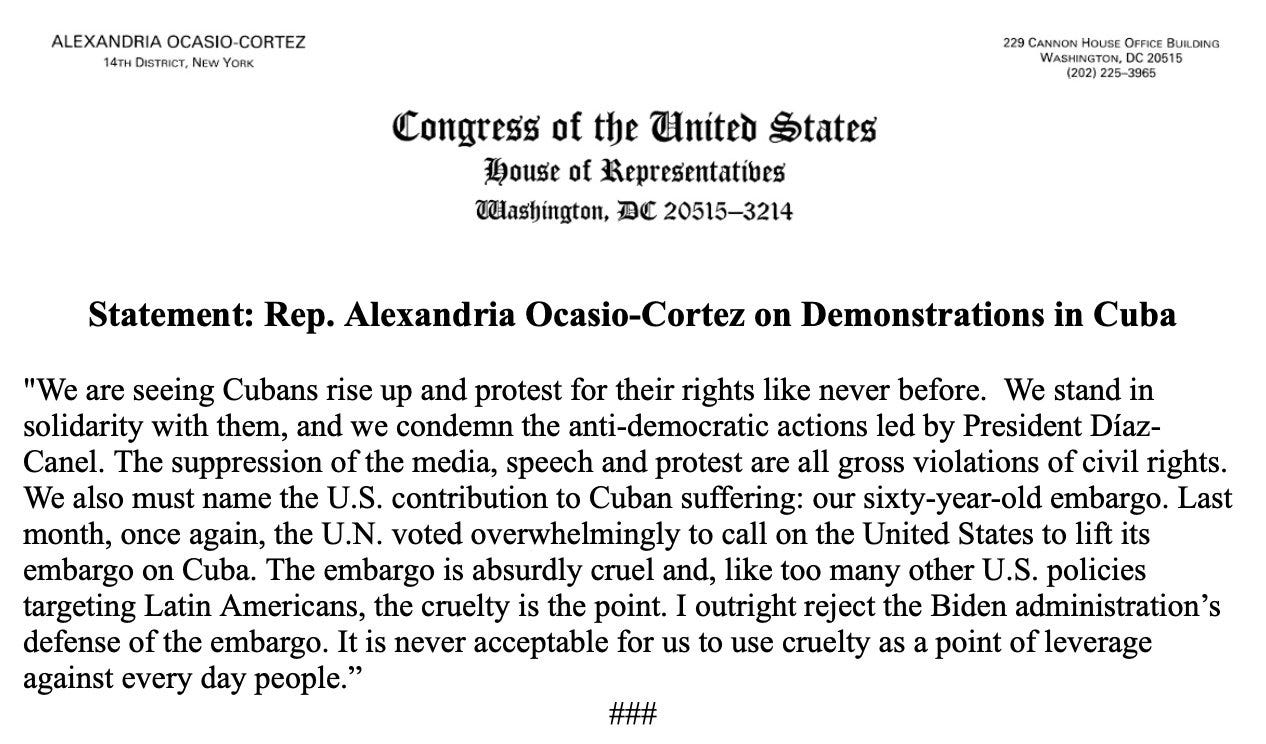Biden’s Cuba problem: Obama made a bet and lost

Credit: Alan Diaz/Associated Press)
By Carlos Gustavo Poggio Teixeira*
Florida, along with New York, has the third-largest number of votes in the Electoral College behind only California and Texas. However, New York, California and Texas are not swing states like Florida. Of the 2.5 million Cuban Americans living in the United States, over two-thirds are in Florida. This is very different from Mexican Americans, for example, who are more concentrated in no-swing states like California and Texas. That alone makes the Cuban American population living in Florida a particularly prized electoral asset.
Thus, unlike U.S. relations with China, Saudi Arabia, Israel or Brazil, for example, it is basically impossible to understand U.S. Cuban policy without taking into consideration the context of presidential electoral math.
But since then, something rather unexpected has happened. History has taken a turn.
For reasons that are still not entirely clear, Cuban Americans have become more conservative — and thus tending more toward the Republicans — since 2016. While in the 2016 elections about half of the Cuban American vote in Florida went to Trump, in 2020 it was 56-41 for the Republican candidate. The latest poll by Florida International University showed that now just 46 percent of younger Cuban Americans in Miami oppose the embargo.
One hypothesis for this shift may be the perception from Cuban Americans that the Democratic party has been veering too far left, a theme relentlessly explored by the Trump campaign. The fact that a major candidate in the Democratic primaries who calls himself a Socialist has almost been nominated by the party in the last two elections has probably helped to cement this perception among Cuban Americans. Regardless of the precise reasons for this shift, the fact is that, at least for now, apparently Obama lost his bet.
And this is the spot where Biden is right now.
Perhaps the 2020 election results from Cuban Americans were such a punch in the eye that Biden and the Democrats were still recovering and figuring out what to do.

Alexandria Ocasio-Cortez has finally broken her silence on Cuba and blamed the unrest on America’s ‘inhumane’ embargoes in a statement posted on Twitter (Source: Daily Mail)
It is no wonder that Sanders and AOC have remained largely silent on the protests in Cuba beyond empty expressions of “solidarity with the Cuban people.” It seems clear that the Democrats are split on this issue and do not know how to respond to it.
The Biden administration’s eventual response to the protests was restricted to mostly meaningless statements of solidarity and concern and even more meaningless “individual sanctions” whose practical effects are exactly zero.
Now the president appears to hope that no new developments in Cuba will force him to take further action and involve himself more deeply in a seemingly divisive issue within his own party: ie. Let’s get back to China.
* Carlos Gustavo Poggio Teixeira is an expert on U.S. Politics, a professor at FAAP and a researcher at INCT-INEU (Brazil’s National Institute of Science and Technology for Studies about the United States). He received a Ph.D. in International Studies from Old Dominion University in Virginia as a Fulbright Scholar. He is the author of “Brazil, the United States, and the South American Subsystem: Regional Politics and the Absent Empire,” chosen by Foreign Affairs Magazine as one of the best International Relations books of 2012.
** Originally published at The Hill, July 29, 2021. This article does not necessarily reflect the opinion of The Hill, OPEU or INCT-INEU.





















